Brussels says PM likely to be offered ‘exchange of letters’ confirming EU’s intention to quickly conclude trade talks.
I am convinced that this will happen, but will it be enough for a deal to get Parliament support? I think it will closer than people think.
Theresa May hopes to secure last-minute assurances from the European Union before next Tuesday’s meaningful vote over Brexit, although there are significant differences between the sides and scepticism that rebel Tories can be won over.
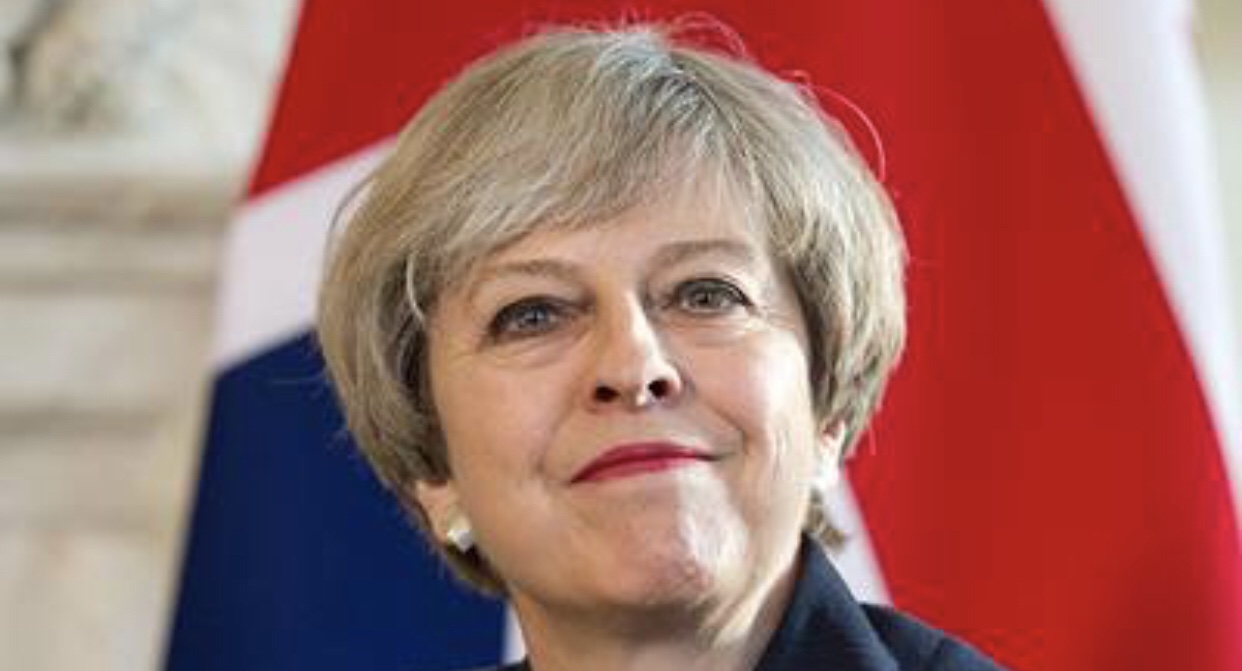
Brussels sources said at lunchtime on Monday that the prime minister was likely to be offered an “exchange of letters” confirming the EU’s intention to quickly conclude trade talks with the UK.
No 10 added that the sought-after clarification would only be published just before next week’s final vote, and would not emerge before the long-awaited five-day Brexit debate begins on Wednesday afternoon.
Jeremy Corbyn demanded that May came to the Commons in the afternoon to spell out what progress had been made in the Brexit talks during the Christmas break, but the prime minister, unveiling a 10-year NHS plan, sent her Brexit secretary, Stephen Barclay, instead.
Corbyn told MPs there should be “no more hiding and no more running away” by the government and said the reason that May had nothing to update about the Brexit talks was because there was “nothing to know”.
Barclay did not answer when asked by Labour MP Alison McGovern whether any assurances obtained would be made public by Wednesday, prompting the backbencher to complain about the lack of progress.
“This is ludicrous. The vote has been delayed for a month for these assurances, yet we are still in the dark. The Brexit clock is ticking but the prime minister just keeps wasting time,” McGovern said after the Commons debate.
The EU says the correspondence under discussion would flesh out language already included in the withdrawal agreement but it is hoped its clarity could persuade some MPs of the EU’s intention to avoid triggering the Irish backstop.
Brussels is willing to repeat that the target for achieving a free-trade deal is the end of 2020, which if achieved would avoid the need for the unpopular Irish backstop to come into force, but the UK is sceptical that deadline can be achieved.
The target date cited in the mooted correspondence would not constitute a deadline for concluding the trade talks, however, and EU officials are sceptical as to whether the gambit will be sufficient to win over enough MPs to get May’s contentious deal through parliament.
An EU official said: “We have to stick to what is in the withdrawal agreement. We can copy and paste – but what is the point if it is a copy and pasting exercise?”
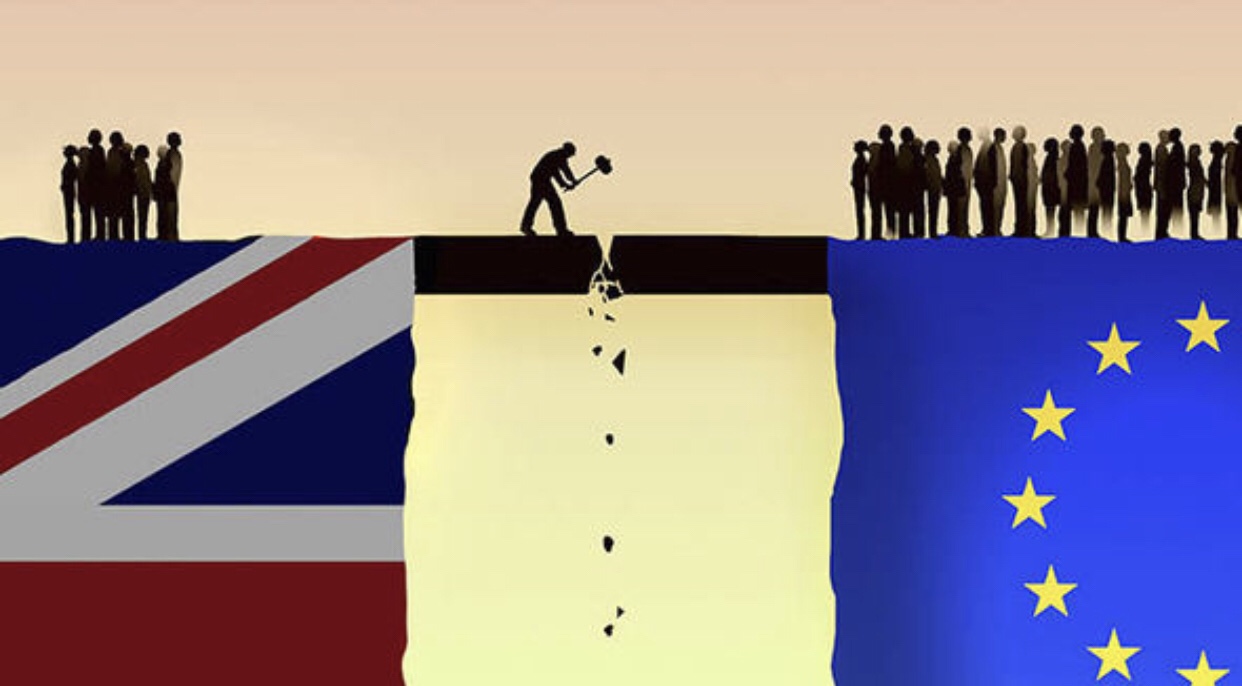
But the UK wants the EU to commit to a more legally binding target to finalise trade talks by the end of 2021, a year later. The UK believes this would force the EU to negotiate in good faith, would allow a realistic amount of time to conclude the free-trade deal, and above all, to limit the Irish backstop to a maximum of a year.
“If we can’t get a free-trade deal agreed by the end of 2020, then what’s the next jumping off point?” a Whitehall source said. “That’s the area we are poking about in.”
The prime minister insisted over the weekend that the delayed vote on the deal would take place in the Commons next Tuesday despite widespread doubts that Downing Street had any hope of success.
There are 81 days until Brexit is due to take place on 29 March, and Downing Street would not rule out MPs sitting over the half-term if that proved necessary. “We’ll do whatever is required to get the relevant legislation in place,” May’s spokesman said.
A deadline is one of three elements of a package – along with strengthened parliamentary oversight and a commitment to keeping open trade between Northern Ireland and Britain – designed to address MPs’ concerns that commitments to avoid a hard Irish border will shackle Britain to Brussels indefinitely.
Downing Street will step up no-deal preparations, with a radio publicity campaign on commercial stations that will start on Tuesday morning. The adverts are intended to help answer questions the public may have, although will inevitably lead to accusations that ministers are trying to frighten the public.
The prime minister’s official spokesman said that in addition to May’s conversations with Jean-Claude Juncker, she had also spoken to France’s president, Emmanuel Macron, on Friday, at the conclusion of a week of high-level diplomacy in an attempt to obtain fresh language to get her deal over the line.
May also spoke to Mark Rutte, the Dutch prime minister, on Wednesday, in addition to previously disclosed calls to the German chancellor, Angela Merkel, and Donald Tusk, the European council president. She was also in contact with the Irish prime minister, Leo Varadkar, her spokesman said.
Source: The Guardian
UK Ministers plan for a ‘practice traffic jam’ to prepare for no deal Brexit: Up to 150 lorries will be sent from Manston Airport to Dover during Monday’s rush hour in last minute test.
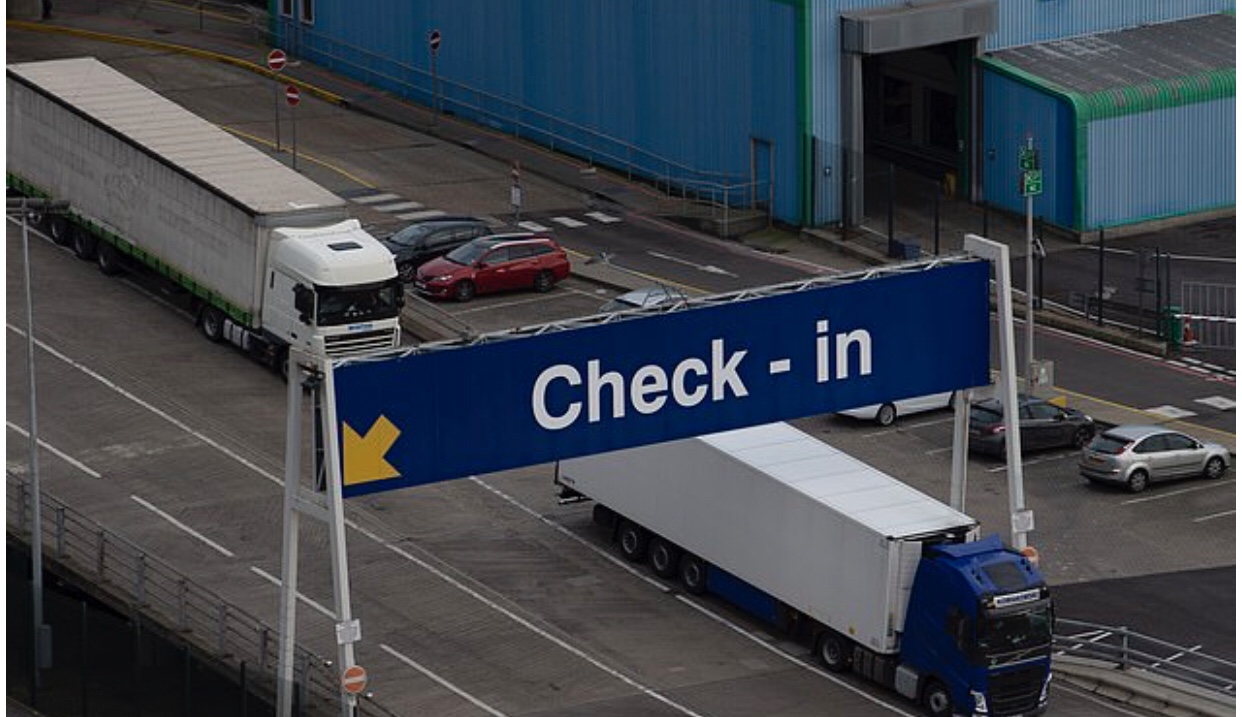
• The test will see up to 150 lorries sent down the A256 at 8am and 11am
• The exercise is designed to check plans for using Manston as a huge lorry park
• Officials need to work out how fast to release lorries using ‘Operation Brock’
• Contingency plan is intended to be used if Dover-Calais route seizes up in March
• A no deal Brexit could cause miles of tailbacks on both sides of the Channel port
Up to 150 lorries will be sent from Manston Airport to Dover during rush hour on Monday in a test to see if Britain is ready for a no deal Brexit.
The exercise will test the idea of using Manston as a huge lorry park if a no deal causes congestion at Dover because of delays sending goods to Calais.
Congestion at the Channel ports caused by the reintroduction of customs checks on goods has been one of the most commonly cited negative impacts of a no-deal withdrawal from the EU at the end of March.
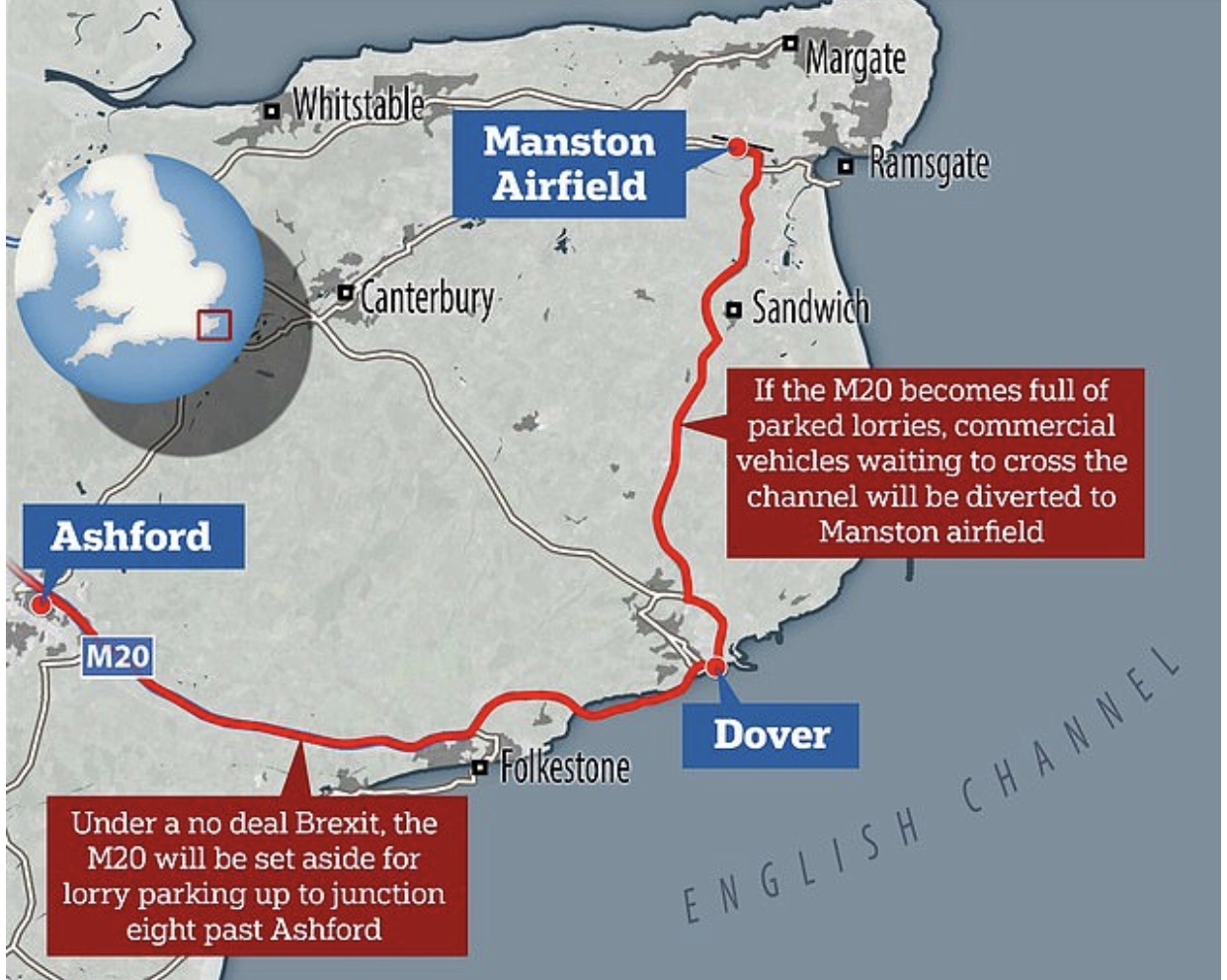
In the event of congestion, lorries will first be parked on the M20 under Operation Stack in a similar way to when bad weather or strikes close the Dover-Calais route. Once that is full as far as Ashford, trucks would be sent to Manston.
The news came after it was reported that Theresa May was due to speak with European Commission president Jean-Claude Juncker on Friday as she seeks added flexibility in the Withdrawal Agreement.
MPs are due to debate the PM’s Brexit deal on Wednesday ahead of a meaningful vote the following week but the EU has yet to offer any changes.
Source: Daily Mail
Today it is 81 days left to Brexit, when United Kingdom leaves the European Union.
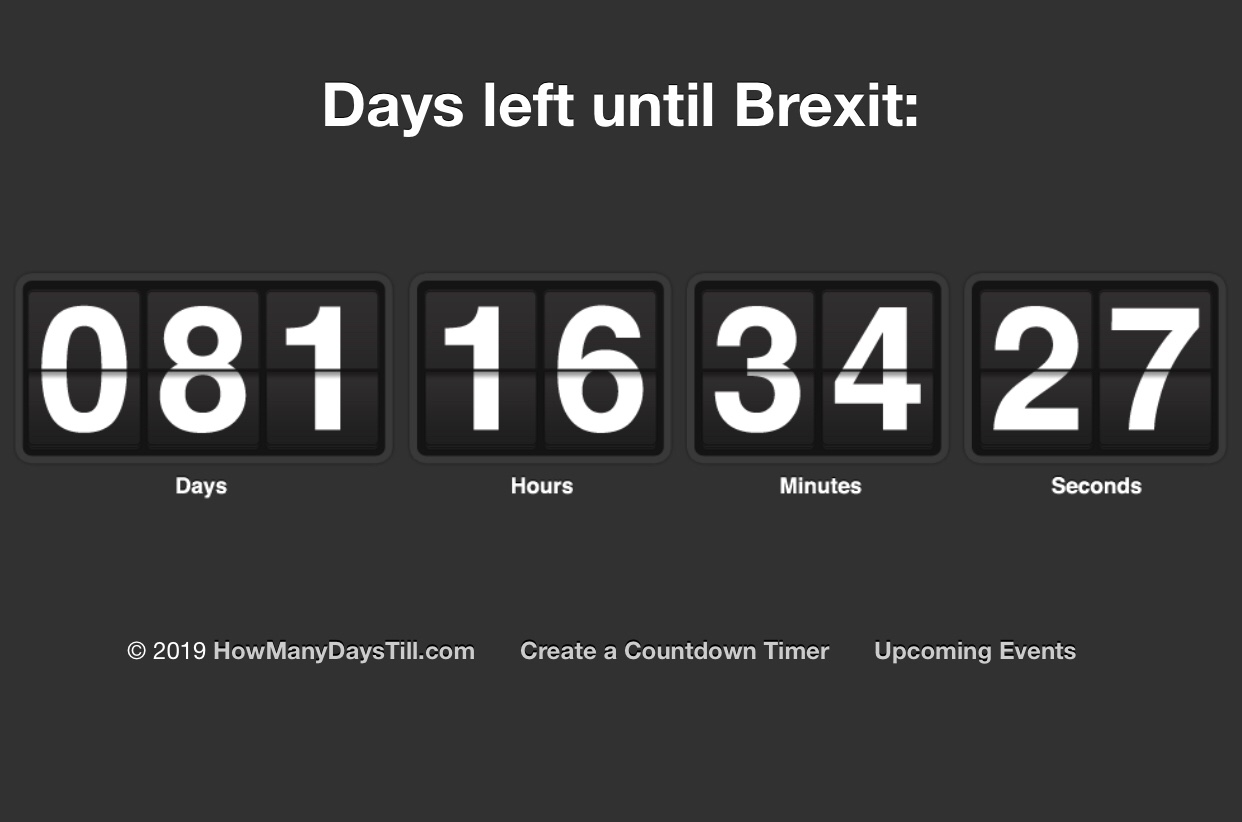
Next week UK will have its vote in the Parliament, House of Commons, on the deal on the table. Will it be possible to get a majority for this deal? It looks difficult. But nothing is impossible. What happens if it is a no to the deal?
Right now it looks like UK then will be leaving the EU without a deal, we will have a no-deal crash-out.
In the debate there have been discussions saying that leaving on what is called “WTO terms” would be equally good or better than leaving with the present negotiated deal. Ehat people then forget is the non-tariff barriers. This is what bothers me.
If UK would leave with no-deal, UK becomes a thord country over night and should be treated like any other third country in line with the EU Union Customs Code.
A deal would at the end of the day mean the same thing but at a later stage, and it would provide time to get border processing and procedures in place.
So to large extent it is on this perspective a matter of time. I have great respect for the different views on if this is a good deal for UK, or for the EU or not. This can naturally be debated. There are cost of being in a Customs Union and Customs territory with free movement of goods, and there are costs being outside such an arrangement. What is best for an individual country is decided by how well the country – in comparison with the common policy of the union – can negotiate trade deals and how well these can be implemented (often forgotten) in relation to modern customs, border and trade policies, procedures and processes.
When it comes to content of a UK-EU Brexit deal from a trade perspective , that still remains to be negotiated under the framework of ‘future relations’. So that is not known for the moment.
What we do know is that everybody involved in trade with UK need to prepare for both a no-deal and a deal scenario. There are 81 days to go.






You must be logged in to post a comment.